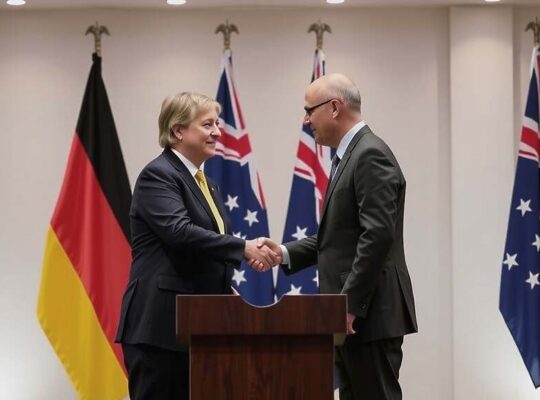The German government’s ambitious plans for bureaucratic streamlining are targeting savings of billions of euros, according to Digital Minister Karsten Wildberger, sparking both optimism and cautious scrutiny within political circles. Wildberger, in a recent interview with “Handelsblatt”, stated that a target of five billion euros in savings would be a satisfactory outcome, emphasizing that prior governmental initiatives have already yielded three billion euros in cost reductions.
The planned “relief cabinet” meeting this Wednesday is predicted to finalize eight laws and several key policy points, indicating a significant push to simplify processes for citizens and businesses. A core component of this undertaking involves leveraging artificial intelligence to optimize permitting and administrative procedures, a move that echoes broader digitalization efforts across Europe. However, critics argue that reliance on AI risks exacerbating existing inequalities if access and digital literacy remain unequal.
Alongside the deregulation push, Wildberger reaffirmed the commitment to the digital wallet project, aiming for a market-ready version by January 2027. The wallet, initially intended to house digital versions of essential documents like passports, driver’s licenses, vehicle registration and insurance cards, faces ongoing development hurdles and concerns about data security. While presented as a convenience for citizens, the project’s potential for data breaches and the implications for individual privacy have drawn critical assessment from privacy advocacy groups.
Beyond domestic reforms, Wildberger strongly advocated for a more assertive European strategy regarding technological sovereignty, warning that an over-reliance on regulation alone is insufficient. He argued that Europe has historically ceded control of crucial technologies to other regions and urged a decisive shift in policy to reclaim leadership in key areas. This stance reflects a broader debate within the EU about reducing dependence on foreign tech providers and fostering greater European innovation, but risks triggering trade disputes and potentially hindering the open exchange of technological advancements. The call for action underscores a growing political tension between fostering domestic innovation and maintaining established international partnerships.












